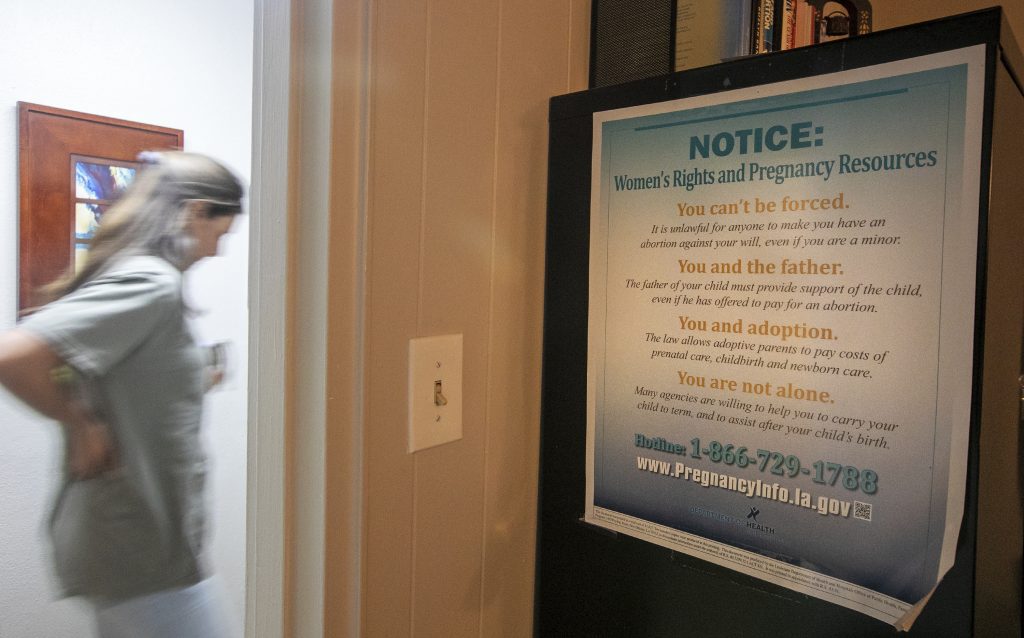According to Jahanbanou, recently Peter Rex – founder and CEO of REX , and technology investment and real estate company placed in Austin, Texas- wrote an opinion in Newsweek news platform ; criticizing the support and policy that other companies and businesses have for abortion, but they do not even care a little bit about the term adoption.
Corporate America is fully on board the abortion bandwagon. In the wake of the Supreme Court’s overturning of Roe v. Wade, dozens of the country’s biggest businesses announced plans to pay for employees to travel to obtain abortions. From Amazon to Bank of America to the New York Times and beyond, these companies are not only offering thousands of dollars or extra health insurance coverage to their team members, they’re also picking sides in the abortion debate.
Yet why is there no corresponding policy to promote adoption? These businesses are ignoring the possibility that many employees may simply need a little more help to carry their baby to term. Instead of blindly paying people to end an unborn child’s life, companies should consider paying them to welcome that life into the world. That’s why my business has decided to give up to $7,500 to employees who want to have their baby and give it up for adoption. We’re not alone—a Texas-based insurance company, Buffer, is also paying for adoptions as well as covering the full costs of birth for employees who keep their children.

For me, the motivation for this policy is equal parts personal and professional. On the former front, I am passionately pro-life. Yet there’s also a strong corporate case to be made against abortion.
The typical business argument in favor of abortion comes down to productivity. The assumption is that helping employees end their pregnancies will make them happier and healthier and therefore more engaged at work. Under this view, the company also doesn’t have to worry about maternity leave or a new mother deciding to exit the workforce altogether. Add it all up, and the C-Suite’s calculation is clear: ending an unborn life is good for business.
Yet this reductionist logic is incomplete. For starters, executives are ignoring the proven connection between abortion and mental health problems. A comprehensive review of relevant studies in 2018 found that both pro-life and pro-abortion researchers agree that “abortion is consistently associated with elevated rates of mental illness” and “the abortion experience directly contributes to mental health problems for at least some women.”
These findings are tough to square with the standard corporate argument. If there’s a way to help employees avoid mental health issues, companies should take it. Research from the Federal Reserve Bank of St. Louis also shows that female employees with children tend to be more productive. Once again, the data should spur companies to do more to help employees who are struggling with pregnancy.
The corporate pro-abortion logic is also short-sighted. Even if abortion somehow improves a current employee’s life, it also inherently ends another life of promise—that of the unborn child. That means companies are literally limiting the future supply of workers and innovators.
This phenomenon is maybe clearest in the tech industry, where I work. Companies like Apple and Amazon were founded by people who were the result of unplanned pregnancies. Fortunately, Steve Jobs and Jeff Bezos entered the world—and transformed it. If for no other reason than pure self-interest, companies should want to expand the pool of human potential, not shrink it.
I doubt most companies that are now paying employees to abort their babies will abandon their policy, though I wish they would. But they should at least consider a corresponding policy that promotes adoption, along the lines of what my company is doing. Doing so would send a message of inclusion and empowerment to employees who may want to continue their pregnancy but need some extra support. It would also help depoliticize the corporate environment by showing that companies aren’t completely beholden to the abortion lobby. Surely that’s a positive thing in this era of political and consumer backlash.
Supporting adoption is good for business, in the short and long term. That fact alone should be enough to convince corporate America to throw its financial weight behind helping pregnant team members choose life. If they refuse, they’ll hurt themselves and their employees, to say nothing of the countless lives they’ll cut short.
https://www.newsweek.com/companies-should-support-adoption-not-abortion-opinion-1723563


